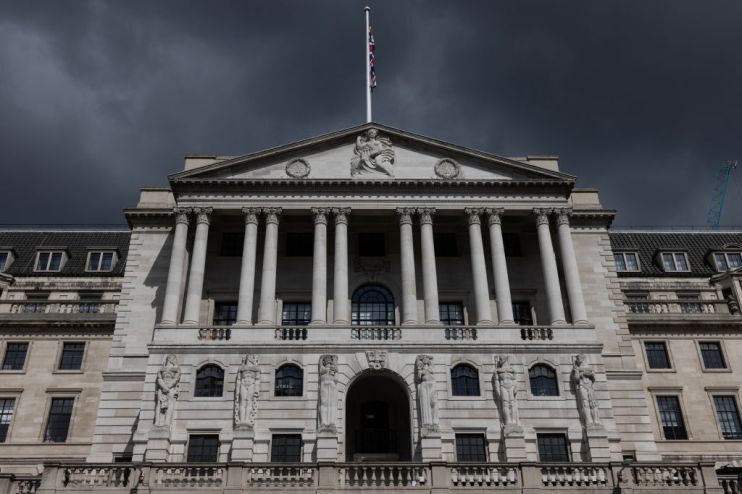Bank of England leaves interest rates on hold after August inflation surprise

The Bank of England brought to an end an unprecedented series of rate hikes today, choosing to hold the rate at 5.25 per cent after shock inflation figures revealed price hikes were abating faster than expected.
The decision was made by the slimmest margin, with five members of the nine-strong rate-setting Monetary Policy Committee (MPC) backing a hold. It is the first time since November 2021 that interest rates were left on hold.
Although inflation remains well above the Bank’s two per cent target, the MPC highlighted that the labour market was beginning to loosen while services inflation had come in lower than the Bank had predicted in August.
Growth was also forecast to be slower than the Bank had previously expected under the weight of the Bank’s previous rate hikes. This raised the risk of over-tightening.
Rate-setters who favoured a pause said it was “important not to put too much weight on a single data point” but said headline and services inflation “were lower than had been expected” in August.
Services inflation, which MPC members have highlighted as crucial indicator of inflationary persistence, fell to 6.8 per cent from 7.4 per cent in July.
In a letter to the Chancellor, Andrew Bailey, Governor of the Bank of England said the fall in services inflation, despite volatility in the figures, “points to some easing of domestic inflationary pressures”.
Although wage growth remains at record levels, with pay rises averaging 8.1 per cent, the Bank said this was “difficult to reconcile” with other indicators of pay growth.
Unemployment has also climbed faster than the Bank anticipated, hitting 4.3 per cent, which should help to bring down wage growth.
“Lags in the effect of monetary policy meant that sizeable impacts from past rate increases were still to come through,” they said.
The four committee members who backed a 25 basis point hike, in contrast, argued the fall in services inflation had been “driven mainly by volatile components”.
They noted that measures of wage growth and services inflation “remained at rates above those consistent with meeting the two per cent target”.
Despite the hold, the Bank was clear that if inflationary pressures persisted, then it would hike rates again.
Bailey told the Chancellor “I can assue you that the MPC will stay the course and keep monetary policy restrictive for sufficiently long to return inflation to the two per cent target in the medium term”.
Inflation took off last year, reaching a peak of over 11 per cent thanks to soaring energy costs and resurgent post-pandemic demand. The rate hikes already undertaken by the Bank have helped to slow the economy, and bring inflation closer to target.
In July the economy contracted 0.5 per cent, with some analysts saying the UK may already be in recession. Survey data suggests that output will continue to fall over the coming months.
The Bank forecast that GDP would rise “only slightly” in the third quarter while underlying growth would be “weaker than expected” too.
The Bank also decided to slightly increase the pace of bond selling, known as quantitative easing. In theory this should reduce inflation by removing some liquidity from the financial system.
Commitee members noted the programme was “going smoothly” and as a result decided that in the year to September 2024, it will reduce its stock of UK government bonds by £100bn. The previous annual target had been £80bn.
The decision comes just a day after the US Federal Reserve chose to leave interest rates unchanged, but signalled that further hikes could come later in the year if the data suggested inflationary pressures were persisting.
Looking further forward the Fed warned that interest rates would likely remain higher for longer in an attempt to decisively stamp out inflation.